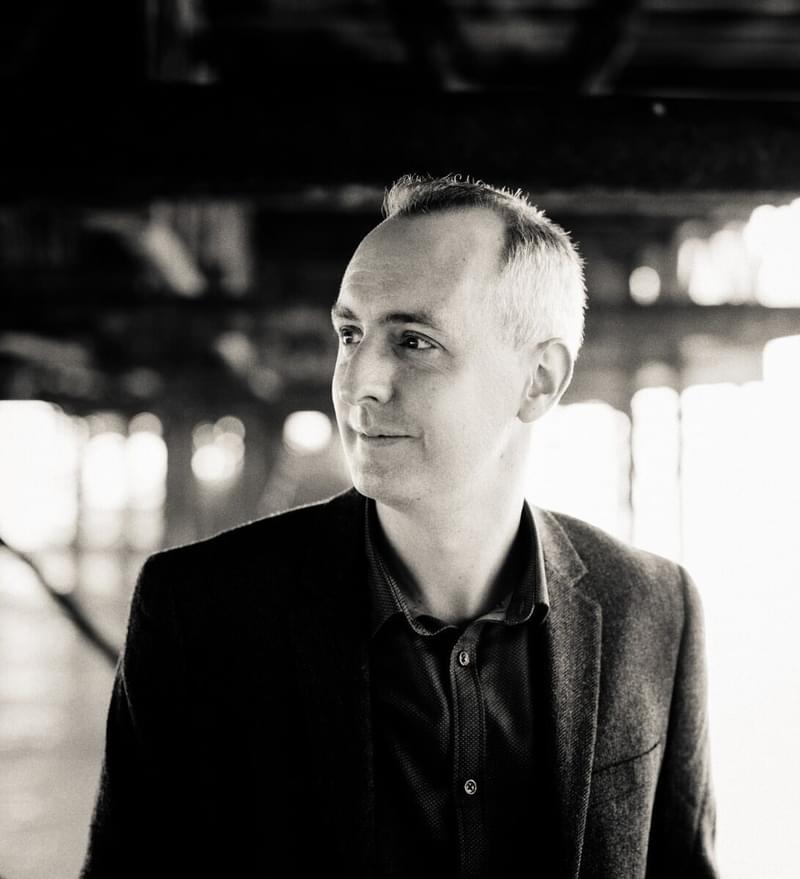David Gorton is a composer and researcher with interests in microtonality, collaboration, and the compositional reimagining of early music
Described by Gramophone magazine as working in the “more radical domain” of British music, David Gorton’s works are often characterised by microtonal tuning systems and performer virtuosity. Yet alongside apparently complex works his output includes compositions for amateur choirs, pieces in the ABRSM Spectrum series, and arrangements and reworkings of music from the sixteenth and seventeenth centuries.
A winner of the Royal Philharmonic Society Composition Prize, David Gorton’s large-scale works include The Fall of Babel for the BBC Symphony Orchestra, Oblique Prayers for Claire Booth and the London Sinfonietta, and Schmetterlingsspiel for Christopher Redgate and Ensemble Exposé.
Since 2010 four portrait albums have been released of his music on the Métier, Toccata Classics, and NEOS labels. Trajectories (Métier, 2010) emerged from a series of residencies at the Tate Gallery in St Ives and includes String Quartet: Trajectories, commissioned for the Kreutzer Quartet to be performed in the sea-facing gallery space.
Orfordness (Métier, 2014) explores ideas of landscape and memory, taking its name from a solo piano piece written for Zubin Kanga that draws on programmatic references to the abandoned military base on Orford Ness. This preoccupation with East Anglian landscapes is continued in other works, including a collaboration with photographer Claire Shovelton resulting in Burgh Castle, written for CHROMA and pianist Roderick Chadwick at the Huddersfield Festival.
Variations on John Dowland (Toccata Classics, 2017) and Farnabye’s Maske (NEOS, 2023) represent another compositional preoccupation, that of late sixteenth- and seventeenth-century music. The first disc contains two works based on original material by John Dowland: Lachrymae Variations for the string orchestra Longbow, and Forlorn Hope for guitarist Stefan Östersjö. Exploration of this compositional interest is continued in the second album, including Concerto su temi Torelli for recorder player Olwen Foulkes and violinist Peter Sheppard Skærved and For some friends (after Matthew Locke) for Peter Sheppard Skærved and pianist Daniel-Ben Pienaar.
He has also written on the subjects of composer–performer collaboration and musical subjectivity, publishing articles and book chapters with Oxford University Press, Leuven University Press, Contemporary Music Review, and Music & Practice. As a member of a research cluster at the Orpheus Institute in Ghent he was co-author of Voices, Bodies, Practices: Performing Musical Subjectivities (Leuven University Press, 2019).
David was a student at Durham University, King’s College London, and the Royal Academy of Music, studying composition with Harrison Birtwistle and Simon Bainbridge. His music is published by Verlag Neue Musik, Berlin. He has been Associate Head of Research at the Academy since 2008, and was appointed as a University of London Professor in January 2022.
Supervision
David supervises and examines PhDs in Composition (Primary and Secondary supervision) and Performance Practice. Supervised project areas include composing with microtonal tunings, instrumental choreography, nostalgia and engagements with the past, responses to musical conditions and community music, the aesthetics of the composer-audience relationship, the development of brass chamber music, the exploration of instruments through collaborations with composers, and the development of counterpoint within jazz.
Selected Publications
A full catalogue of published compositions can be found at Verlag Neue Musik, Berlin.
Gorton, D., Kanno, M., & Östersjö, S. Cerro Rico: the co-production of a discursive voice in chamber music. Music & Practice, volume 7, 2020. https://www.musicandpractice.org/volume-7/
Gorton D., & Östersjö, S. Negotiating the Discursive Voice in Chamber Music. In Performance, Subjectivity, and Experimentation, edited by Catherine Laws, 53-78. Leuven: Leuven University Press, 2020.
Gorton D., & Östersjö, S. Austerity Measures I: performing the discursive voice. In Voices, Bodies, Practices: performing musical subjectivities, by Catherine Laws, William Brooks, David Gorton, Nguyễn Thanh Thủy, Stefan Östersjö, and Jeremy J. Wells, 29-82. Leuven: Leuven University Press, 2019.
Clarke, E., Doffman, M., Gorton, D., & Östersjö, S. Fluid Practices, Solid Roles? The evolution of Forlorn Hope. In Distributed Creativity: Collaboration and Improvisation in Contemporary Music, edited by Eric Clarke and Mark Doffman, 116-135. Oxford: Oxford University Press, 2018.
Gorton, D., & Redgate, C. Austerity Measures and Rich Rewards. In Experimental encounters in music and beyond, edited by Kathleen Coessens, 64-73. Leuven: Leuven University Press, 2017.
Gorton, D., & Östersjö, S. Choose your own adventure music: on the emergence of voice in musical collaboration. Contemporary Music Review 35, no. 6 (2016): 579–598.
Gorton, D., & Kanga, Z. Risky Business: negotiating virtuosity in the collaborative creation of Orfordness for solo piano. In Music and/as Process, edited by Lauren Redhead and Vanessa Hawes, 97-115. Cambridge: Cambridge Scholars, 2016.
Coorevits, E., Moelants, D., Östersjö, S., Gorton, D., & Leman, M. Decomposing a Composition: On the Multi-layered Analysis of Expressive Music Performance. In Music, Mind, and Embodiment: 11th International Symposium, CMMR 2015, edited by Richard Kronland-Martinet, Mitsuko Aramaic, and Sølvi Ystad, 167-189. Springer International Publishing, 2016.
Gorton, D., Shaw-Miller, S., & Heyde, N. Instrumental Choreography: Gesture and Performance in Gorton’s Capriccio for solo cello. In La musique et ses instruments, edited by Michèle Castellengo and Huhues Genevois, 485-493. Delatour France, 2013.
